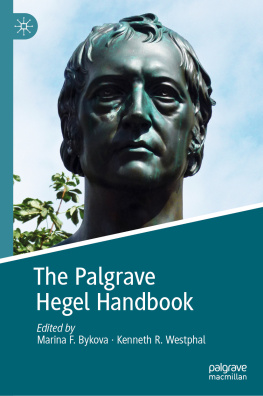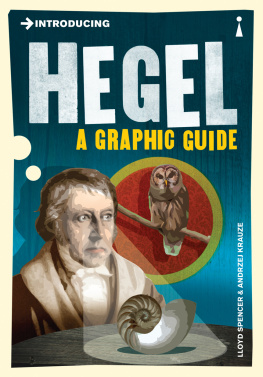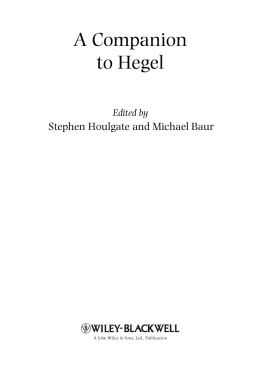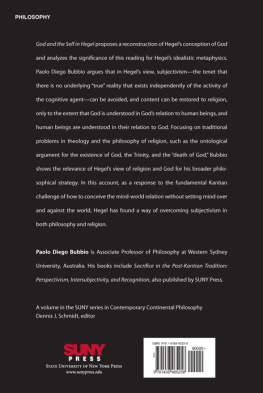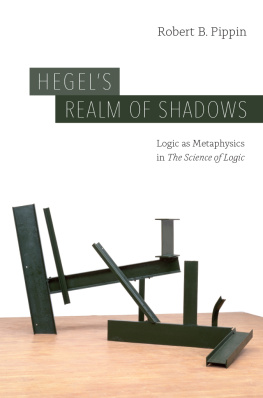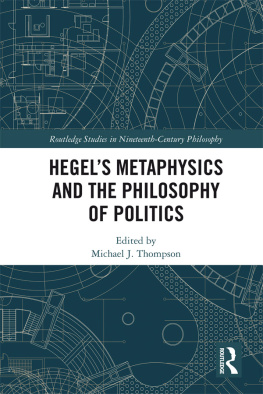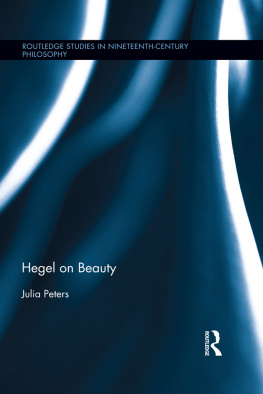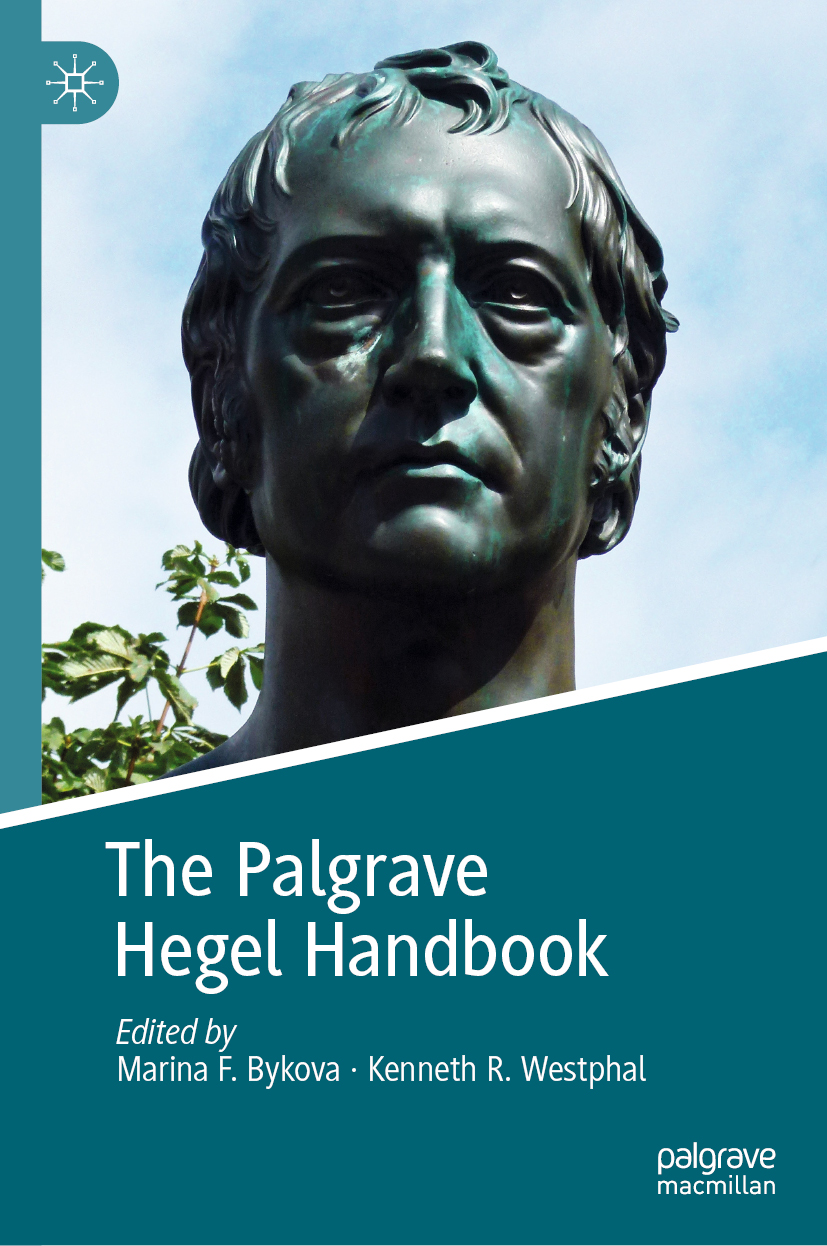Palgrave Handbooks in German Idealism
Series Editor
Matthew C. Altman
Philosophy & Religious Studies, Central Washington University, Ellensburg, WA, USA
Palgrave Handbooks in German Idealismis a series of comprehensive and authoritative edited volumes on the major German Idealist philosophers and their critics. Underpinning the series is the successfulPalgrave Handbook of German Idealism(2014), edited by Matthew C. Altman, which provides an overview of the period, its greatest philosophers, and its historical and philosophical importance.
Individual volumes focus on specific philosophers and major themes, offering a more detailed treatment of the many facets of their work in metaphysics, epistemology, logic, ethics, aesthetics, political philosophy, and several other areas. Each volume is edited by one or more internationally recognized experts in the subject, and contributors include both established figures and younger scholars with innovative readings. The series offers a wide-ranging and authoritative insight into German Idealism, appropriate for both students and specialists.
More information about this series at http://www.palgrave.com/gp/series/14696
The Palgrave Kant Handbook
Edited by Matthew C. Altman
The Palgrave Schopenhauer Handbook
Edited by Sandra Shapshay
The Palgrave Hegel Handbook
Edited by Marina F. Bykova and Kenneth R. Westphal
The Palgrave Fichte Handbook(forthcoming)
Edited by Steven Hoeltzel
The Palgrave Handbook of German Romantic Philosophy(forthcoming)
Edited by Elizabeth Milln Brusslan
The Palgrave Schelling Handbook(forthcoming)
Edited by Sean J. McGrath & Kyla Bruff
The Palgrave Handbook of Transcendental, Neo-Kantian, and Psychological Idealism(forthcoming)
The Palgrave Handbook of Critics of Idealism(forthcoming)
Editors
Marina F. Bykova and Kenneth R. Westphal
The Palgrave Hegel Handbook
Editors
Marina F. Bykova
Department of Philosophy and Religious Studies, North Carolina State University, Raleigh, NC, USA
Kenneth R. Westphal
Department of Philosophy, Boazii niversitesi, stanbul, Turkey
Palgrave Handbooks in German Idealism
ISBN 978-3-030-26596-0 e-ISBN 978-3-030-26597-7
https://doi.org/10.1007/978-3-030-26597-7
The Editor(s) (if applicable) and The Author(s) 2020
This work is subject to copyright. All rights are solely and exclusively licensed by the Publisher, whether the whole or part of the material is concerned, specifically the rights of translation, reprinting, reuse of illustrations, recitation, broadcasting, reproduction on microfilms or in any other physical way, and transmission or information storage and retrieval, electronic adaptation, computer software, or by similar or dissimilar methodology now known or hereafter developed.
The use of general descriptive names, registered names, trademarks, service marks, etc. in this publication does not imply, even in the absence of a specific statement, that such names are exempt from the relevant protective laws and regulations and therefore free for general use.
The publisher, the authors and the editors are safe to assume that the advice and information in this book are believed to be true and accurate at the date of publication. Neither the publisher nor the authors or the editors give a warranty, expressed or implied, with respect to the material contained herein or for any errors or omissions that may have been made. The publisher remains neutral with regard to jurisdictional claims in published maps and institutional affiliations.
Cover illustration: Berlin, Hegel ( www.flickr.com/photos/dierkschaefer/9636385888/in/photostream/ ) by Dierk Schaefer, is licensed under CC BY 2.0 (creativecommons.org/licenses/by/2.0/)
This Palgrave Macmillan imprint is published by the registered company Springer Nature Switzerland AG
The registered company address is: Gewerbestrasse 11, 6330 Cham, Switzerland
Series Editors Preface
The era of German Idealism stands alongside ancient Greece and the French Enlightenment as one of the most fruitful and influential periods in the history of philosophy. Beginning with the publication of KantsCritique of Pure Reasonin 1781 and ending about ten years after Hegels death in 1831, the period of classical German philosophy transformed whole fields of philosophical endeavor. The intellectual energy of this movement is still very much alive in contemporary philosophy; the philosophers of that period continue to inform our thinking and spark debates of interpretation.
After a period of neglect, as a result of the early analytic philosophers rejection of idealism, interest in the field has grown exponentially in recent years. Indeed, the study of German Idealism has perhaps never been more active in the English-speaking world than it is today. Many books appear every year that offer historical/interpretive approaches to understanding the work of the German Idealists, and many others adopt and develop their insights and apply them to contemporary issues in epistemology, metaphysics, ethics, politics, and aesthetics, among other fields. In addition, a number of international journals are devoted to idealism as a whole and to specific idealist philosophers, and journals in both the history of philosophy and contemporary philosophies have regular contributions on the German Idealists. In numerous countries, there are regular conferences and study groups run by philosophical associations that focus on this period and its key figures, especially Kant, Fichte, Schelling, Hegel, and Schopenhauer.
As part of this growing discussion, the volumes in thePalgrave Handbooks in German Idealismseries are designed to provide overviews of the major figures and movements in German Idealism, with a breadth and depth of coverage that distinguishes them from other anthologies. Chapters have been specially commissioned for this series, and they are written by established and emerging scholars from throughout the world. Contributors not only provide overviews of their subject matter but also explore the cutting edge of the field by advancing original theses. Some authors develop or revise positions that they have taken in their other publications, and some take novel approaches that challenge existing paradigms. ThePalgrave Handbooks in German Idealismthus give students a natural starting point from which to begin their study of German Idealism, and they serve as a resource for advanced scholars to engage in meaningful discussions about the movements philosophical and historical importance.
In short, thePalgrave Handbooks in German Idealismhave comprehensiveness, accessibility, depth, and philosophical rigor as their overriding goals. These are challenging aims, to be sure, especially when held simultaneously, but that is the task that the excellent scholars who are editing and contributing to these volumes have set for themselves.
Matthew C. Altman
Preface
This new volume in thePalgrave Handbooks in German Idealismseries focuses on Georg Wilhelm Friedrich Hegel, whose work marks the pinnacle of the movement commonly known as German idealism. With Hegels death, German idealism came virtually to the end, giving way to new philosophical movements and schools, most of which first appeared in response or as a critical reaction to Hegel and Hegelian philosophy. Hegel secured himself an important place in the history of philosophy not only as the last of the great philosophical system builders of modern times who employed dialectic to emphasize the progress of history and of thoughts, but also as one whose groundbreaking ideas and far-reaching insights continue to influence work in philosophy and many other humanities and social science disciplines today.

